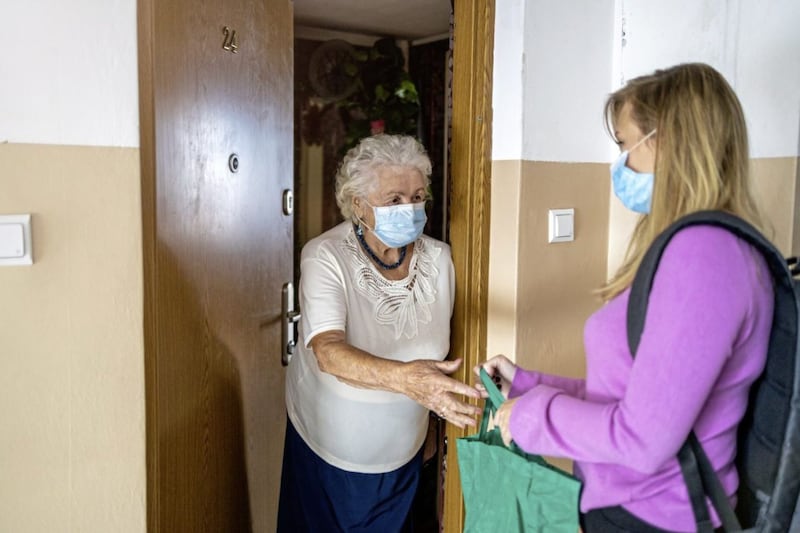COVID is a scourge on all of us. Loneliness is also a scourge on many of us, as we know all too well.
In May 2018 GPs said "loneliness has become a public health epidemic". The huge scale of the problem in Northern Ireland was further reinforced in a report in December last year by the Campaign to End Loneliness.
Two of the findings were quite dramatic, even if they were not a surprise: chronic loneliness affects one in 20 people in Northern Ireland, and 88 per cent of people here said that loneliness has become a bigger problem since the beginning of the Covid-19 pandemic.
It is a problem that has many ramifications. In a sobering paper last year, the Northern Ireland Assembly Research and Information Service pointed to research demonstrating "that chronic loneliness, along with social isolation, is associated with poorer mental and physical health outcomes and, consequently, is increasingly being recognised as a major public health concern".
It continued: "It has been claimed that chronic loneliness can be as bad for your health as smoking 15 cigarettes a day and, along with social isolation, has also been associated with increased cognitive decline, dementia, stroke and cardiovascular disease, along with a range of other conditions and illnesses."
And only last month the British Red Cross urged the Northern Ireland Executive to develop a strategy to tackle loneliness.
That, in turn, made me rather cross - for loneliness is a serious shortage of good supportive relationships, and that is something government simply cannot fix, and should not be expected to fix.
It does have a role to play, but the suggestion that yet again we should look first and foremost to the state to deal with the problem is to devalue the critical importance of personal relationships and personal responsibility in facing the epidemic.
I have never quite understood why we are so often so reluctant to really get to know our neighbours, or to actively seek to care for them
So I suggest that each and every one of us can - indeed really ought to - play our part in addressing this scourge.
The fascinating story of the Good Samaritan told by Jesus offers a clear starting point.
The story points us to anyone in need, but to no group or individuals in particular. There are lonely people who are literally our neighbours, living in the same street, just along the road or round the corner.
I have never quite understood why we are so often reluctant to really get to know our neighbours, or to actively seek to care for them.
Certainly, the rampant and highly destructive culture that promotes individualism and personal rights rather than personal responsibility or concern for the common good is making the problem of loneliness worse.
And it is self-evident that helping others face their loneliness inevitably makes real calls on our time and our resources.

Yet to invest that time and effort, and commit to ongoing friendship and support to others, including our neighbours, is a wonderful privilege (as well as a very good discipline) for us all, and certainly for Christian people.
Most people want to have warm and mutually beneficial relationships around them most days.
Few of us really want to be an island cut off from everyone and everywhere else.
This is the way the Bible wants us to live, for it constantly calls us to live in harmony and in close relationship with other people.
Helping others face their loneliness inevitably makes real calls on our time and our resources
Paul the apostle was a real enthusiast about sharing his own life with others.
He wrote this: "Because we loved you so much, we were delighted to share with you not only the gospel of God - but our lives as well" (1 Thessalonians 2:8).
The health of mind, body and soul is at stake. It is a wonderful privilege as well as a happy responsibility to help deal with this scourge of loneliness - rather than pass the buck to the government.
So, how's about sharing your life with someone else who may be lonely, and doing so this week.
Of itself that will lessen the impact of the epidemic. That cannot be other than good news - given that we are all facing another and quite different health pandemic.
Vaccines will lead us out of the scourge of Covid-19. There is no vaccine for loneliness - and the only way out is love and support for those who need it.
The Rev Dr Norman Hamilton is a former Presbyterian moderator.








